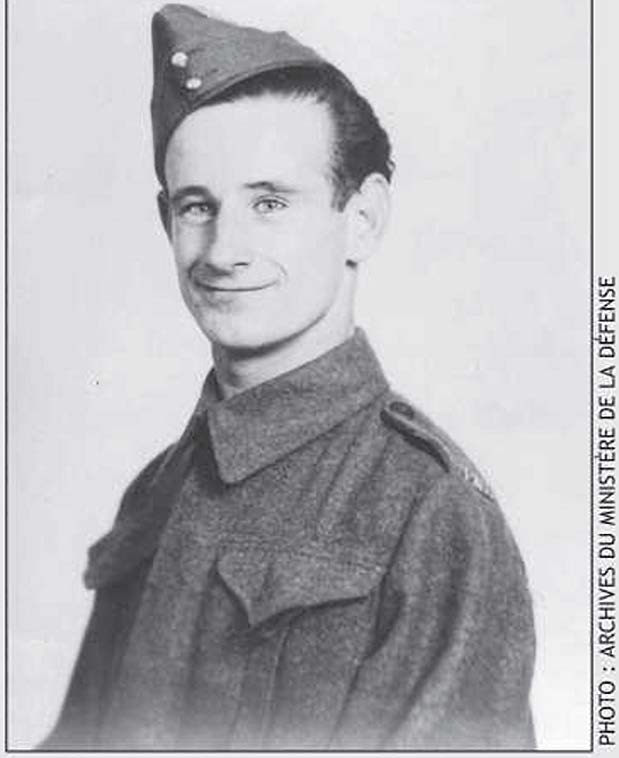One would be hard-pressed to imagine that the smiling face of the distinguished looking, soft-spoken gentleman who greets us at the door was a prisoner of war for 33 months during World War II.
Jacques Nadeau, today, at the age of 85, belies the image of a stem, authoritative, imposing military man. With his lovely wife Jacqueline sitting close by, this former member of the Fusiliers Mont-Royal recounts the events of his youth as a soldier in the Canadian armed forces.
When asked what motivated him to choose this path at such a young age, Mr. Nadeau replied that he had long dreamed of becoming a soldier. He displayed a keen interest in history, especially the Great War. In July 1940, at the age of 17, Jacques Nadeau enlisted in the Fusiliers Mont-Royal and trained at Valcartier. He and hundreds of his comrades shipped out in 1941. They landed in England after a long, arduous fourteen-day voyage across the Atlantic that foreshadowed the catastrophic Operation ‘Jubilee’ at Dieppe.
Following three months of additional intensive training on the Isle of Wight in August 1942, Mr. Nadeau embarked on a voyage that would change his life forever. The fiasco of the raid at Dieppe, a venture that will go down in history as a tragic and deadly operation, took the lives of thousands of young men ; it also caused the banishment of infantryman Jacques Nadeau, along with 2,000 other soldier-victims, to Stalag 153 at Verneuil-sur-Avre, 90 km from Paris. Later he and many others were transported to Stalag 8B in Lamsdorf, a prisoner of war camp in Eastern Germany, and finally to a working camp in German-occupied Poland. Here, the horrors of camp life – both physical and emotional – were compounded by the proximity of the infamous Auschwitz death camp : it stood no less than 28 km from the oil refinery in which they were working.
During his captivity, and despite having his bands tied for 53 days, and later shackled, Jacques Nadeau attempted to escape no fewer than three times. Regardless of severe beatings when captured on two occasions, he persisted. His third attempt was successful ! Jacques Nadeau and 59 other Canadian P.O.W’s walked east towards Russia and were finally able to board a Canadian Pacific Steamship at Odessa, in the U.S.S.R. The long journey through Eastern Europe brought him to England and finally home to Canada in May, 1945.
With a warm smile, as he tums to his beloved Jacqueline, he admits quite candidly that throughout the entire ordeal, his correspondence with her as his pen pal (marraine de guerre) kept his spirit strong. The couple was married on May 21 1946, raised four children, and have spent the last 34 years of their life together here, in Saint-Armand. Jacques Nadeau remained in the armed forces until his retirement in 1971.
On occasion, be is invited to speak to school children and address various groups at conferences. He strives to answer their questions as truthfully as possible without relating explicit details of a time and place that only one who has lived through it keeps dose to his heart. Should we go to war ? No, Sir !
Special interest Note :
At the time of this interview, Mr. Nadeau informed us that an historic account of his army experience will be published by Athéna Éditions under the title Dieppe, ma prison. The launching of this work is scheduled to take place on August 221h 2008, in Montreal, at the Arsenal of the Fusiliers Mont-Royal.






